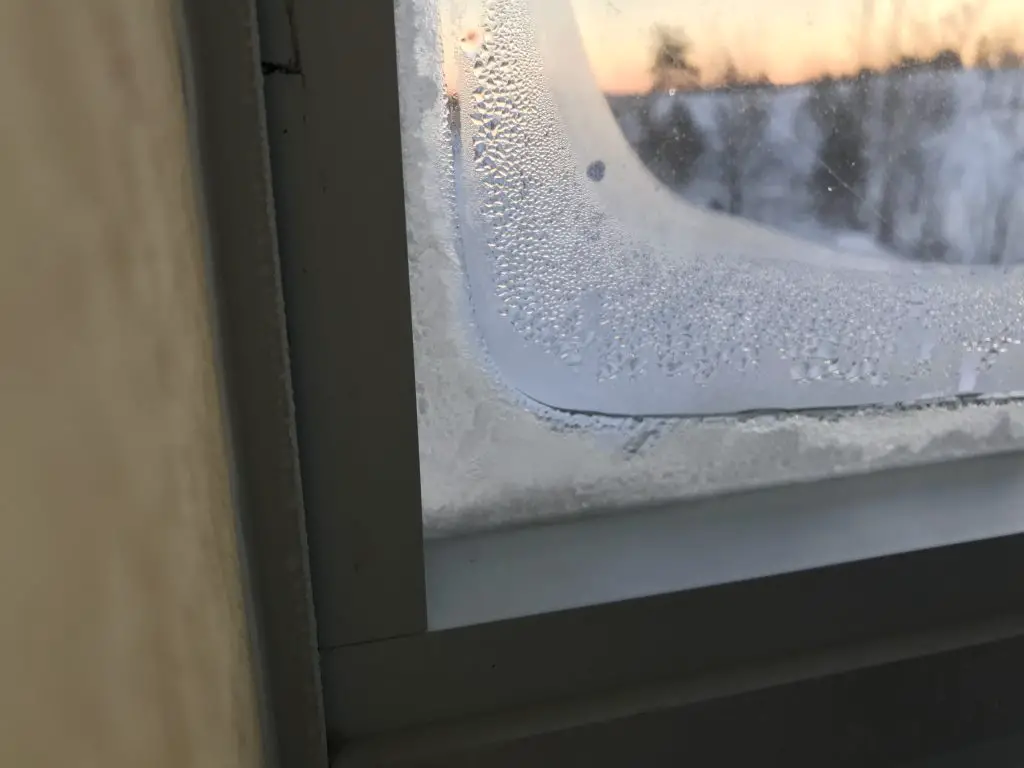If you live in a place that gets colder than freezing, winter could mean indoor air quality in your home that would be considered harmful or even illegal in a workplace situation. That’s what happens when you live in a modern home in a cold place and keep the windows closed for half the year to save energy. Building a tight home is just half the battle towards the worthwhile goal of minimizing energy consumption. You also need to take steps to replace the natural ventilation that used to happen through cracks, gaps and bad windows in leakier homes. I was reminded of this when a subscriber asked me a question by email. She encountering the kind of window condensation and ice that you see below.
Question: “What’s best for ventilating a tight home that develops window condensation, an HRV or an ERV?”
My short answer is that an heat recovery ventilator (HRV) is the best given cold winter temperatures for homes that develop excessive window condensation. The reason is because and HRV has much more power to reduce indoor humidity levels in your home. An HRV brings in a stream of fresh outdoor air, it exhausts stale indoor air outdoors, and it preserves most of the energy invested in heating your home. Condensation that would normally happen on your windows now happens inside the HRV. In cold climates like ours, lowering humidity is usually what’s needed most urgently, as evidenced by windows wet with condensation and ice on them during cold weather. If you want to dry out your windows, an HRV is definitely the way to go.
An energy recovery ventilator (ERV), by contrast, preserves moisture levels within your house while introducing fresh air and recovers energy invested in either heating or cooling. An ERV will freshen the air in your home, yes, but it won’t dry your wet windows very much during winter, if at all.
So which type should you choose? Ideally, an HRV is superior for use during winters in places that get cold (and in homes with wet winter windows), but an ERV would be better during the summer (when excess humidity typically exists outdoors and you want to keep it there). But given the fact that most of us only want to install one system, I’d definitely go with an HRV for a typical home anywhere that gets temperatures that don’t rise above freezing during some days during winter. If you live in a climate where temperatures don’t drop much (or ever) below freezing, then an ERV makes more sense.
Click below to watch my video on indoor air quality and HRVs, and judge for yourself if what you’re breathing is really good for you. You’ll also learn what you can do to make things better.
